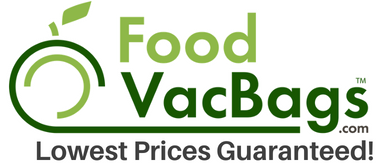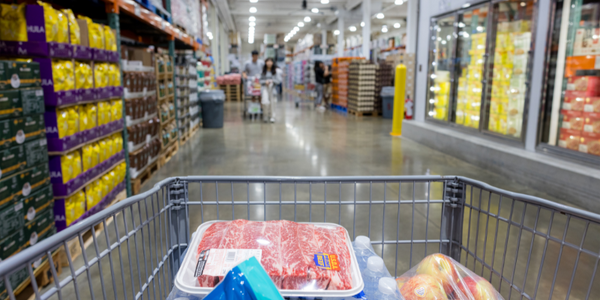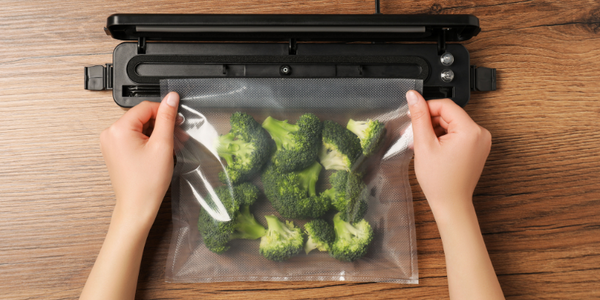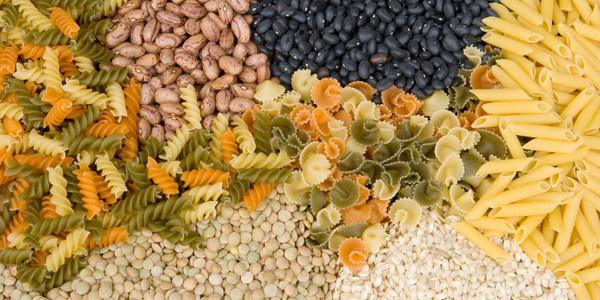Posted on April 21 2022

Food shortages can happen for various reasons, and they can last for days, weeks, or months. The most common causes are natural disasters, such as wildfires, hurricanes, earthquakes, and floods. Food shortages can also be the result of terrorist attacks on food distribution systems or even economic collapse.
Whatever the cause of a food shortage, you should be prepared to care for yourself and your family for at least a few days to weeks without buying new supplies. Let's look at some ways to prepare for a food shortage, so you and your family will remain safe.
- Grow your own food in a garden or in containers.
One way to ensure you have access to food is to grow it yourself. Growing your own food has several advantages. For one, you know exactly how it's been grown and you can avoid pesticides and genetically modified organisms (GMOs). It also means you know exactly how much fresh food you will have available.
You can grow a garden outside, or in containers if your space is limited or if the soil quality isn't good enough for growing vegetables. You can even grow a garden in a community where many people pitch in for the common good and take turns tending the plants and harvesting food.
The type of crops you can grow depends on where you live and your climate. Food grows better during certain seasons, but you can still grow some crops like lettuce, kale, and spinach using cold frames or greenhouses. A small greenhouse can be a good investment.
- Stock up on canned foods and freeze-dried foods.
Canned foods are an essential part of any emergency food supply because they're nonperishable and easy to store. Plus, most canned foods include a long "best by" date, so you don't have to worry about them going bad before you need them. When shopping for canned foods, focus on vegetables and fruits packed in their own juices, without added sugars and salt. Store your canned foods in cool areas, like your basement or garage. Avoid storing them in hot places like your attic. Excessive heat will break down the chemicals in food faster, which reduces their nutritional value.
Freeze-dried foods are another excellent option for your emergency food storage needs because they offer similar benefits to canned foods while taking up much less space. They're lightweight, easy to store, and have a long shelf life.
If you want to make your own emergency food supply, dehydrate fruits and vegetables in a dehydrator or in an oven set at a low temperature (around 140 degrees Fahrenheit). Make sure all the moisture is gone before storing your food because moisture encourages bacteria growth. When stored properly, these foods can last up to five years.
- Learn to cook without electricity.
You should also learn how to cook without electricity. This means learning how to use a camp stove or propane grill to cook your food. You should also know how to build an outdoor kitchen, so you can survive in a natural disaster or other emergency situation.
You may also want to invest in survival equipment, such as water filters, flashlights, sleeping bags, and first-aid kits. These will ensure you are prepared for any situation that may arise in a disaster or emergency.
- Ensure you have adequate water.
Above all else, you need adequate water. You should have at least one gallon of water per person, per day. You will need this for drinking, cooking, and hygiene. Don't forget to include pets in this calculation.
Also, purchase water purification tablets and large containers that can hold the amount of water your family needs each day. Then fill those containers with tap water and store them in a cool area away from sunlight until you need them.
- Reduce food waste.
When stockpiling, it's important to focus on efficiency. The first step is to ensure you don't waste food. The average American family wastes 250 pounds of food each year, around a third of what they buy. With this in mind, here are three tips for reducing your food waste:
A. Store your food correctly. Food storage is key when trying to reduce waste, so look at your refrigerator and freezer to ensure that you are storing items correctly. For example, many people believe you shouldn't keep potatoes in the refrigerator but doing so will maximize their freshness.
B. Know when foods go bad. If you aren't sure how long something will last in the fridge or pantry, check this resource EatByDate.com for a list of shelf lives for common household items like bread and dairy products. You can also find our Food Storage Chart for Vacuum Sealed Foods by clicking here.
C. Eat leftovers. If you have leftovers from dinner or extras from meal planning, consider setting aside one night a week where everyone eats leftovers (we call it "Leftover Night"). This can help reduce food waste while saving you time and money in the kitchen!
- Get creative with the protein you eat.
Protein is one of the most important components of your diet. Protein helps build muscle, repairs tissue, and is used to produce enzymes, hormones, and antibodies. Most dietary protein comes from animal products, but you can also find it in beans, lentils, nuts, seeds, whole grains, and soy.
Beans and lentils are the least expensive protein source available, and they store well in dried form. They are one of the best foods for long-term storage because they provide good nutrition and calories in a compact space.
Here are six easy ways to eat beans:
- Stews
- Salads
- Soups
- Chili
- Baked casseroles
- Bean burgers
Beans are a great source of protein, vitamins, minerals, phytonutrients, and fiber. They're also versatile, so you have many options when planning your meals. Beans can complement an entire meal or be the main part of it. You can experiment with different types and flavors to create a wide variety of recipes that both children and adults will enjoy.
Try beans in place of meat in tacos or burritos. Use black beans or kidney beans in chili, which is usually served with rice or cornbread anyway. You can also make hummus from chickpeas, which is delicious on sandwiches and wraps.
You can store dried beans for two to three years before they start losing their vitamins. So, they're one of the best foods to have on hand during a food shortage.
- Start preparing now.
If you prepare well, you will indeed be ready for a food shortage. It is crucial that you begin your preparations as soon as possible. This is so important because storing food and building up your food stores takes time and money. The more time you have before the crisis begins, the less pressure you will feel when it actually comes to pass. Your family members will all have different needs, which means planning as a family is best to ensure everyone has their needs met.
It's also best if you plan for the long term to ensure no one goes hungry for a day or two should something go wrong with your preparations. When preparing for yourself and your loved ones, always be aware of what's realistic -- you can't store an infinite amount of saltine crackers in your home, so don't try! That wouldn't be a healthy choice anyway. Remember, just like most things in life, preparation is key. Start as early as possible.





0 comments